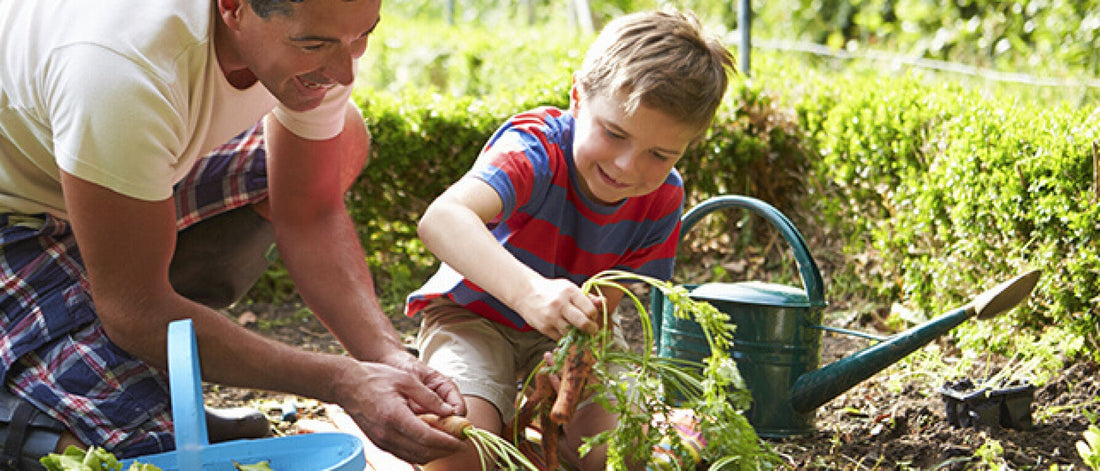American culture smacks of rugged individualism and a “can-do, can’t-fail” attitude. In this youth-oriented, future-focused nation, an irrational desire for material success drives the culture and economy. When people come to this country, they leave the past behind and look only to the future. This attitude serves us well when we focus on creating wealth. However, as a nation obsessed by a drive-to-succeed at all costs, we’ve lost connection with our souls. We don’t take the time to nurture our inner world. As a result, our lives can lack deeper meaning and we can feel empty.
Many of us recognize this separation from soul as a serious problem, and want to do something about it. Unfortunately, few Westerners know where to turn. Long-standing indigenous African traditions can show us how to live in balance with nature and maintain relationships with our ancestors, who can offer guidance. By teaching us the importance of ritual, African healing tradition can help us reconnect with our souls.
In the indigenous African worldview, no real separation exists between the spirit world and the realm of matter. Wherever matter occurs, Spirit can be found, and vice versa. Africans don’t view spirituality as a part of life. To them, all life is spiritual. All aspects of reality (both the seen and unseen world) work together.
One cannot expect people in the West to suddenly adopt an African worldview. However, we can be more in tune with our natural environment by being present and paying attention to it. Awareness of nature opens pathways for us to be more aware of our inner environment. A relationship with nature creates inner balance in us.
Gardening provides an easy way to shift our perspective on nature. By working with soil, we connect directly to the earth. In addition, growing plants, whether for food or for pleasure, reminds us of all the bounty the earth has to offer.
We can also enhance our relationship with nature by creating a sit spot. This spot can be as close as your backyard or near a body of water. It doesn’t matter where, as long at it feels peaceful. It should be accessed regularly—daily, if possible—with few distractions. The purpose of a sit spot is to be present with nature. Over time, you may begin to notice all the nuanced ways in which nature expresses herself: the birds chirping a particular tune, a certain shade of green on each leaf, the way sunlight hits the rocks just so. With time, you may eventually recognize yourself as a part of nature—not apart from it.
The importance of ritual in indigenous African tradition cannot be overstated. Ritual serves as a gateway to the land of ancestors and to the realm of Spirit. It evokes sacredness and intentionality. From birth until death, some ritual marks every milestone in a person’s life. Rituals anchor the individual to the community and give structure and meaning to life.
Almost anything can become a ritual, as long as you set an intention for general well-being and positive energy. For example, before a gathering of family members, you can set an intention for love and connection to flow between all present. Stating this intention out loud makes it even more powerful.
Another way to ritualize an activity is to invoke the blessings of our ancestors. Communication with ancestors forms an important part of the African healing tradition. Tribal people believe their ancestors serve as a “lobby” in the spirit realm. They can make appeals for good things on their descendants’ behalf. In order to have good standing in the spirit realm, Africans believe they must maintain a good relationship with the ancestors.
Unfortunately, many people in the United States know nothing of their ancestry. Most can name members of their families going back only a couple of generations. In Africa, one who does not know his or her lineage is considered lost. In order to reconnect to our soul, we need to reconnect to our ancestors.
You can access the power held in your ancestry by deepening your connection to your ancestors. A simple starting point would involve setting up an altar of pictures of loved ones who have passed away to pay daily tribute. Speaking an ancestor’s name out loud is another powerful practice in Africa. One is thought to literally call the ancestor forth to ask him or her for guidance.
You can also learn more about your ancestors by visiting ancestral lands. A teacher once told me that no medicine is as powerful as that which comes from one’s own ancestry. The land holds the power of the people—being there physically can have tremendous soul-healing benefits. Each of us carries a connection to our ancestral land no matter where you live. We all need to renew that connection from time to time.
When you reach out to your ancestors, reconnect with your natural environment, and practice ritual, you can begin the journey back to soul and achieve wholeness.
Many of us recognize this separation from soul as a serious problem, and want to do something about it. Unfortunately, few Westerners know where to turn. Long-standing indigenous African traditions can show us how to live in balance with nature and maintain relationships with our ancestors, who can offer guidance. By teaching us the importance of ritual, African healing tradition can help us reconnect with our souls.
In the indigenous African worldview, no real separation exists between the spirit world and the realm of matter. Wherever matter occurs, Spirit can be found, and vice versa. Africans don’t view spirituality as a part of life. To them, all life is spiritual. All aspects of reality (both the seen and unseen world) work together.
One cannot expect people in the West to suddenly adopt an African worldview. However, we can be more in tune with our natural environment by being present and paying attention to it. Awareness of nature opens pathways for us to be more aware of our inner environment. A relationship with nature creates inner balance in us.
Gardening provides an easy way to shift our perspective on nature. By working with soil, we connect directly to the earth. In addition, growing plants, whether for food or for pleasure, reminds us of all the bounty the earth has to offer.
We can also enhance our relationship with nature by creating a sit spot. This spot can be as close as your backyard or near a body of water. It doesn’t matter where, as long at it feels peaceful. It should be accessed regularly—daily, if possible—with few distractions. The purpose of a sit spot is to be present with nature. Over time, you may begin to notice all the nuanced ways in which nature expresses herself: the birds chirping a particular tune, a certain shade of green on each leaf, the way sunlight hits the rocks just so. With time, you may eventually recognize yourself as a part of nature—not apart from it.
Ritual and the Ancestors
Most of us already practice ritual without realizing it. For example, parents often have a bedtime routine with their children, or families gather for Sunday dinners. In order to turn these habitual practices into rituals though, you need to set an intention.The importance of ritual in indigenous African tradition cannot be overstated. Ritual serves as a gateway to the land of ancestors and to the realm of Spirit. It evokes sacredness and intentionality. From birth until death, some ritual marks every milestone in a person’s life. Rituals anchor the individual to the community and give structure and meaning to life.
Almost anything can become a ritual, as long as you set an intention for general well-being and positive energy. For example, before a gathering of family members, you can set an intention for love and connection to flow between all present. Stating this intention out loud makes it even more powerful.
Another way to ritualize an activity is to invoke the blessings of our ancestors. Communication with ancestors forms an important part of the African healing tradition. Tribal people believe their ancestors serve as a “lobby” in the spirit realm. They can make appeals for good things on their descendants’ behalf. In order to have good standing in the spirit realm, Africans believe they must maintain a good relationship with the ancestors.
Unfortunately, many people in the United States know nothing of their ancestry. Most can name members of their families going back only a couple of generations. In Africa, one who does not know his or her lineage is considered lost. In order to reconnect to our soul, we need to reconnect to our ancestors.
You can access the power held in your ancestry by deepening your connection to your ancestors. A simple starting point would involve setting up an altar of pictures of loved ones who have passed away to pay daily tribute. Speaking an ancestor’s name out loud is another powerful practice in Africa. One is thought to literally call the ancestor forth to ask him or her for guidance.
You can also learn more about your ancestors by visiting ancestral lands. A teacher once told me that no medicine is as powerful as that which comes from one’s own ancestry. The land holds the power of the people—being there physically can have tremendous soul-healing benefits. Each of us carries a connection to our ancestral land no matter where you live. We all need to renew that connection from time to time.
When you reach out to your ancestors, reconnect with your natural environment, and practice ritual, you can begin the journey back to soul and achieve wholeness.






















